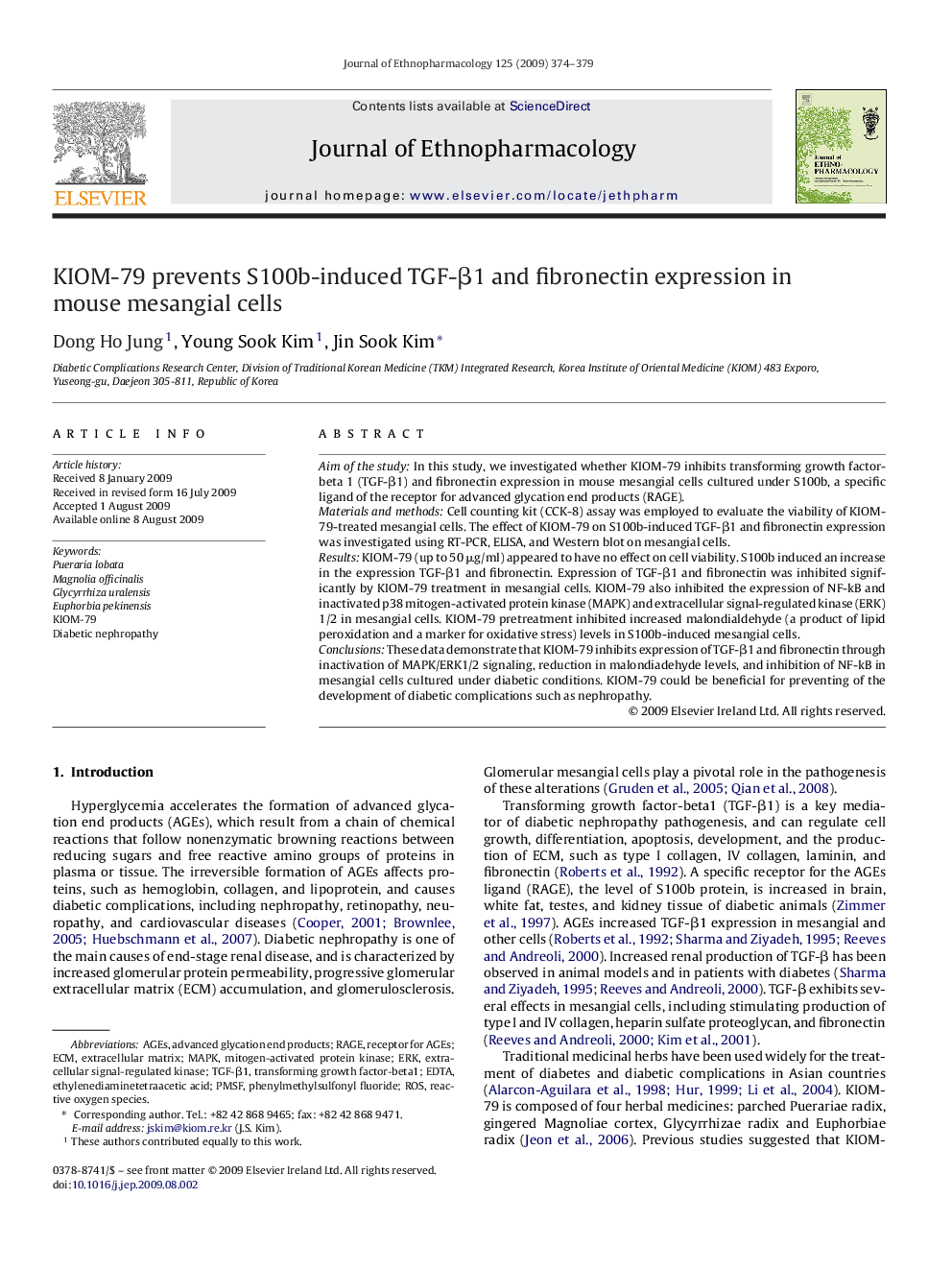| Article ID | Journal | Published Year | Pages | File Type |
|---|---|---|---|---|
| 2546811 | Journal of Ethnopharmacology | 2009 | 6 Pages |
Aim of the studyIn this study, we investigated whether KIOM-79 inhibits transforming growth factor-beta 1 (TGF-β1) and fibronectin expression in mouse mesangial cells cultured under S100b, a specific ligand of the receptor for advanced glycation end products (RAGE).Materials and methodsCell counting kit (CCK-8) assay was employed to evaluate the viability of KIOM-79-treated mesangial cells. The effect of KIOM-79 on S100b-induced TGF-β1 and fibronectin expression was investigated using RT-PCR, ELISA, and Western blot on mesangial cells.ResultsKIOM-79 (up to 50 μg/ml) appeared to have no effect on cell viability. S100b induced an increase in the expression TGF-β1 and fibronectin. Expression of TGF-β1 and fibronectin was inhibited significantly by KIOM-79 treatment in mesangial cells. KIOM-79 also inhibited the expression of NF-kB and inactivated p38 mitogen-activated protein kinase (MAPK) and extracellular signal-regulated kinase (ERK) 1/2 in mesangial cells. KIOM-79 pretreatment inhibited increased malondialdehyde (a product of lipid peroxidation and a marker for oxidative stress) levels in S100b-induced mesangial cells.ConclusionsThese data demonstrate that KIOM-79 inhibits expression of TGF-β1 and fibronectin through inactivation of MAPK/ERK1/2 signaling, reduction in malondiadehyde levels, and inhibition of NF-kB in mesangial cells cultured under diabetic conditions. KIOM-79 could be beneficial for preventing of the development of diabetic complications such as nephropathy.
